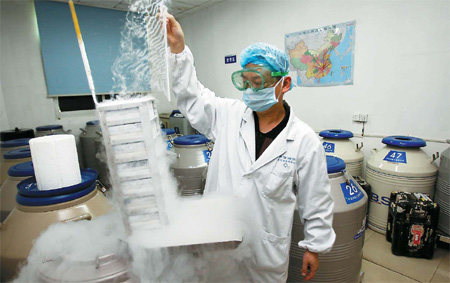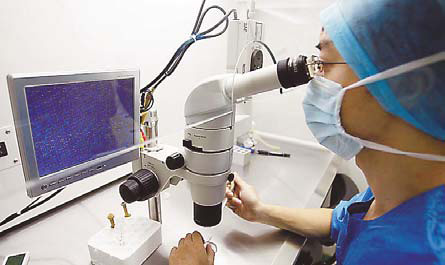Focus
Couples become easy prey in tube baby boom
By Cao Li and Duan Yan in Beijing (China Daily)
Updated: 2010-11-02 07:52
 |
Large Medium Small |
Question of control
Government bureaus responsible for supervising healthcare and industries have launched several crackdowns on illegal ART services. However, the fundamental problem, say experts, lies with the absence of any criminal or civil law that punishes owners of unlicensed practices.
Following the initial boom in IVF in the late 1990s, the Ministry of Health in 2001 released its first directives stipulating the ethics of IVF and the rules of qualification and procedure. The next year, an authorization system was established. Today, hospitals cleared to offer IVF treatments are strictly evaluated and receive regular inspections by officials.
"Unfortunately, the rules that are in place have not proved practical," said Sun Muyi, a professor of medical ethics at Southeast University in Nanjing, capital of Jiangsu province.
The numbers of hospitals that can obtain an IVF license from the ministry is strictly controlled and some in the industry say that by approving more applications, officials could take a big step toward solving the problem of illegal services.
Yet, Sun disagreed and said only a strong deterrent will work.
"This is serious," he added. "The abuse of IVF could affect our next generation. Improper operations increase the risk of birth defects in babies, while being able to choose the sex could impact the gender balance."
|
A laboratory worker checks sperm samples stored in liquid nitrogen at the reproductive health center of Xiangya Hospital in Changsha, capital of Hunan province, which offers IVF treatments. Zhang Tao / China Daily |
|
A researcher examines samples taken from a patient receiving IVF treatment at the reproductive health unit at Xiangya Hospital. Zhang Tao / China Daily |



